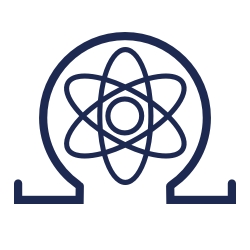The Quantum Resistant Ledger (QRL) Foundation, creator of the world’s leading quantum-secure blockchain network and digital asset platform, is continuing to pioneer in the field by seeking up to 4 post-quantum cryptographers for research grants as part of its newly formed research initiative. This announcement comes on the tail of Google’s quantum supremacy achievement, which further confirms the need for a transition towards quantum-secure cryptography in many technological domains.

Zug, Switzerland, October 25, 2019 –(PR.com)– The Quantum Resistant Ledger (QRL) Foundation, creator of the world’s leading quantum-secure blockchain network and digital asset platform, is continuing to pioneer in the field by seeking up to 4 post-quantum cryptographers for research grants. This initiative comes on the tail of Google’s quantum supremacy achievement, which further confirms the need for a transition towards quantum-secure cryptography in many technological domains.
QRL is the first fully quantum-resistant blockchain network and digital asset platform. It relies on a third-party audited and IETF specified implementation of the eXtended Merkle Signature Scheme (XMSS), rather than on ECDSA as other blockchains projects do. This security has been in place since the genesis block, and is augmented by a forward thinking crypto-agile approach characterized by an address format designed to be adaptable to future signature schemes, which may arise in response to additional security threats beyond those posed by quantum computers. In parallel, QRL is set to be the first enterprise-grade platform to utilise the lattice-based Dilithium and Kyber algorithms. They form the basis for QRL’s ephemeral messaging layer, a resilient and decentralised post-quantum messaging service which will run alongside the QRL network.
Google, in partnership with NASA, has demonstrated the ability to perform a computation in seconds that would otherwise take our largest supercomputers thousands of years – an achievement known as “quantum supremacy.” The power of Quantum computing is said to be growing at a double-exponential rate when compared to classical computers, an observation first made by Google’s Hartmut Neven. This rapid progress signifies that it is only a matter of time until quantum computers will be able to break elliptic curve cryptography (ECC). Public Key infrastructure reliant on ECC underpins both the security of the internet and the security of funds on most blockchain networks (like Bitcoin and Ethereum).
To continue the pioneering work in the development of post-quantum cryptographic applications, and to help address the threat quantum computing will have globally, The Quantum Resistant Ledger Foundation is opening up its research arm and seeking up to 4 post-quantum cryptographers who are interested in pursuing research grants for lattice-based threshold cryptography.
Applicants can visit https://theqrl.org/research/grants for up-to-date information on the grants available or express interest to [email protected]
Note to editors
The Quantum Resistant Ledger (QRL) is a forward-thinking, fully quantum-resistant blockchain network and digital asset platform which uses a secure, audited, and IETF specified implementation of the eXtended Merkle Tree Signature Scheme (XMSS) from its genesis block. This is in direct contrast with a vast majority of blockchains which lack audits and rely on ECDSA, a signature scheme which is vulnerable to quantum attacks and which will be difficult to replace. The security of the QRL platform and its post-quantum value store is complemented by a vast suite of core features and a development ecosystem which allows users to build new blockchain applications which use or connect to the QRL protocol.
For more information and press requests, contact Adam Koltun, [email protected]
Let’s block ads! (Why?)






